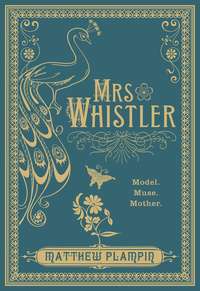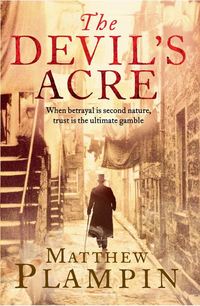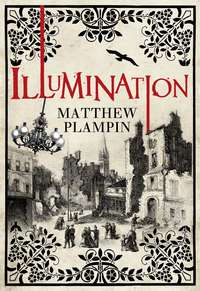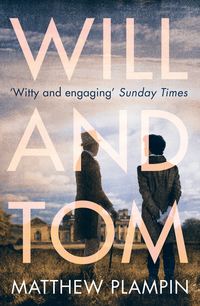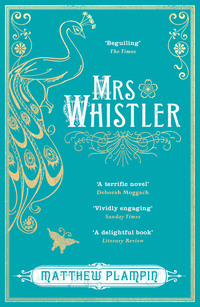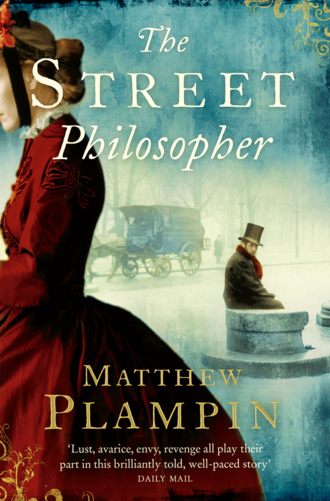
Полная версия
The Street Philosopher
‘You must excuse my attire, Mrs James, and my manners. It has been a trying evening.’ He looked past her to the cart bearing the wounded officer, which was preparing to start up the street towards Piccadilly.
Jemima perceived that he was considering flight. ‘Tell me, sir,’ she said quickly, thinking to halt him, ‘if you are not a doctor, then what are you?’
‘I am a newspaperman.’ He made a shallow bow. ‘Thomas Kitson, madam. Of the Manchester Evening Star.’
Bill appeared breathlessly at Jemima’s side. He congratulated Mr Kitson for his efforts, shaking his damp hand before speculating briefly on the identity of the assailant. Then he informed Jemima that he was going up to his club to tell Freddie Keane and the rest of the chaps about the attack. Jemima tried to contain her irritation; this was typical of Bill. He would now stay out all night, roaming the very same streets he had been voicing such caution about ten minutes earlier–leaving her to endure their father alone. It had happened on countless previous occasions.
‘Mr Kitson,’ she said brightly, ‘would you do me the honour of taking some refreshment in my father’s office across the street? You must be in need of fortification after your labours, sir, noble or not. There is brandy, isn’t there, William?’
The deal had been proposed. Bill furrowed his brow, but he was not about to object. He nodded, mumbling an affirmative. Mr Kitson tried to protest, but was too tired and too courteous to disappoint her. After accepting Jemima’s invitation, he went to the cluster of working people close to the cart–not to check on the injured officer but to point out the location of the rusty lamp to a couple of workmen. It was most extraordinary. He seemed to be actively avoiding the man he had saved, as if he had some personal objection to him. Jemima could not account for it.
Bill walked Jemima and Mr Kitson back to the office, leaving them with the desk clerk. They sat before the window, Mr Kitson moving a chair next to the one Jemima had occupied earlier. The clerk, watching their bloodstained guest very closely, poured a tumbler of brandy and brought it over, setting it on the wide sill. Mr Kitson picked up the glass, hesitating when it was close to his lips. It was clear that he still found something about his hand profoundly distasteful. He had washed both quite thoroughly at the pump, but had evidently not managed to clean them to his satisfaction. Swallowing the liquor in one swift gulp, he put the glass back down and muttered an apology for his hastiness.
Jemima knew little of the Evening Star, but she felt that this man could not be a representative example of its staff. He had no real accent, for example–one would surely expect a correspondent from so modest a publication to be a Lancashire man from the lower middle classes, with the speech to match. I’d stake my library, she mused, on Mr Kitson being a recent arrival in our city. Adopting a cordial tone, she began to inquire politely about his situation.
He proved an agreeable if somewhat opaque conversationalist. He’d been in Manchester only since the end of the previous year, as she’d guessed. Other things about him, however, were more surprising.
‘I am the Star’s society writer,’ he revealed. ‘A street philosopher, I believe it is called in these parts.’
‘A street philosopher?’ Jemima didn’t try to hide her amazement. ‘A professional gossip, you mean? The spy who lurks on the margins of our parks and theatres, labelling everyone who passes him with some acidic, facetious sobriquet? Surely not! I mean–you must excuse me, Mr Kitson, but you hardly seem the type.’ As a rule, Jemima tried to keep well clear of any publication that vaunted such writing as part of its appeal. It tended to be facile in the extreme, tawdry and vacuous, concerned only with fashion, scandal and money. And it was proving increasingly hard to avoid.
He appeared unperturbed by her reaction; there might even have been amusement in his eyes. ‘You flatter me with your doubt, Mrs James, but it takes more expertise than you might realise. There are important lessons to be learned, you know, from the living panorama of the modern city–lessons in the ever-shifting chances and changes of life.’ He turned his face away from the window as the major’s dray rolled past, a chattering crowd trailing behind it. ‘Besides, I was in urgent need of a position, and it was the only one available.’
Was this a mordant joke, or in earnest? Jemima found that she could not tell. ‘Are you working now, Mr Kitson? Can I expect to feature in the next edition of the Star?’
The smile was a brief one, and obviously infrequent. ‘No, madam, I’m afraid that I have other responsibilities at present. My paper has no dedicated art correspondent, you see, so they have assigned me to cover the Exhibition.’
This disclosure made Jemima immediately impatient. The Art Treasures Exhibition was widely held to be the finest undertaking ever to be staged in Manchester, the city’s answer to the Great Exhibition of 1851. A vast display had been gathered from the private picture collections of the country, and then assembled in a modish iron-and-glass structure at Old Trafford, on the outskirts of town–well away from the grime of the factories. Charles Norton, Jemima’s father, was on the ninety-strong committee of local luminaries who had brought this thing into existence, and she had been made to listen to his boasting and self-aggrandising on the subject for the better part of a year. The building was to be opened in three days’ time, with all the pomp and splendour that the rich men of the city could procure. The trip to town for new clothes had been Jemima’s final trial before the occasion itself.
‘The Exhibition,’ she intoned heavily, dragging the word out to its constituent syllables. ‘Do you concur with the general chorus of opinion, then, Mr Kitson, and believe that it will be a magnificent triumph?’
‘I do, Mrs James, very much so.’ He paused. ‘But you, I think, do not.’
Jemima sat up in her chair. ‘I simply look around me, sir,’ she responded with some energy, ‘at the slums of Salford, and Ancoats, and elsewhere, and then at the glorious Art Treasures Exhibition, and the many thousands of guineas that have vanished into it, and I cannot help but think that if the masters of the Cottonopolis were really interested in the benefit of all, as they so frequently say, they would realise that an art exhibition is a long way down the list of things that our urban poor require.’
‘I must say, madam,’ Mr Kitson murmured, ‘that for the daughter of a labour-lord, you are quite the radical.’
This was the first indication he had given that he knew who she was, and in whose premises he sat. ‘So I am told. Often by the labour-lord himself.’
He smiled again. Mr Kitson and I are forming quite an acquaintance, Jemima thought. She willed further delay upon her coach, thinking that she could happily sit exchanging views with this man for the rest of the evening. Something, at least, had been salvaged from a tiresome day. Across the room, the clerk cleared his throat loudly and turned over a page in his ledger.
The Star’s street philosopher began to offer his own opinions on the Exhibition. As he spoke, his ironic nuance fell away and was replaced with warm conviction, making Jemima feel frostily cynical by comparison. For him, the Exhibition was the first in a tradition, the harbinger of a new age: a popular art exhibition, staged for the country at large. Gone would be the days of art being solely an attribute of privilege. With this exemplar, he claimed, the exclusive galleries of old would have an egalitarian counterpoint, and the fruits of mankind’s finest endeavours would be available to all.
Jemima was familiar with this position, and frankly thought it a little idealistic; but had never heard it outlined with such eloquent sincerity. ‘You feel strongly on this subject, Mr Kitson,’ she observed. ‘One might reasonably infer that you had been forced to spend time in these exclusive galleries you so despise.’
This dispelled Mr Kitson’s enthusiasm completely. He stared down at the office’s elaborately tiled floor. ‘I was an art correspondent on a London paper before I came to Manchester,’ he admitted. ‘I attended countless exhibitions–every one closed to the broad mass of society.’
‘A London paper? Which one?’
Mr Kitson did not look up. ‘The Courier.’
Now Jemima was intrigued. This man had left one of Britain’s most prestigious journals, famous for the global scope of its correspondence, to write for the Manchester Evening Star, which was barely known even in the next county. ‘Why, I take the Courier myself! I have probably read your work, Mr Kitson. I shall have to search through my old issues as soon as I arrive home. May I ask why you left?’
He became evasive, volunteering only that he had become fatigued with life in the capital and the vagaries of the London art world. There was something in his manner that made Jemima realise that this man had fled to Manchester. But what could be so bad as to make one look for refuge in the nation’s workshop, writing street philosophy for a penny paper? There was an explanation here well beyond the fatigue that Mr Kitson claimed–although he was certainly a man on whom fatigue had preyed.
Jemima peered back into the room, at a row of framed prints on its far wall. ‘Do you know, I believe there are some illustrations from the Courier in this very office. From the Russian War–the opening stages of the campaign, before the paper’s coverage became so controversial, and—’
Mr Kitson sprung to his feet, startling Jemima and the desk clerk and almost knocking over his chair. He strode over to the prints and made a rapid survey of them, stopping before one that depicted the battlefield of the Alma.
‘Mrs James, why on earth does your father decorate his sales office with such images?’ The question was almost accusatory. He did not turn from the picture as he asked it; his earlier curtness had returned with his distraction.
Jemima remained quite calm. She directed a restraining glance at the clerk, who seemed ready to fetch a constable. ‘For all your familiarity with Manchester society, Mr Kitson, you street philosophers clearly know little of our city’s business affairs. Charles Norton’s meteoric rise is one of the great tales of the town. And the late war played a crucial role in it.’
She rose from her seat, arranged her shawl around her shoulders and crossed the office to stand beside him. His eyes shone as if filmed with tears; his face was impassive, though, and he was gripping one hand with the other to stop them from shaking. They looked at the Courier print, at the hillside strewn with the dead, and she told him how her father had found his fortune.
Two and a half years ago, at the start of 1855, Charles Norton had been the master of one of Manchester’s smallest foundries–the continuing survival of which was a source of some wonderment to the city’s community of businessmen. When he had been approached by William Fairbairn of the mighty Fairbairn shipbuilding and engineering company and asked if he would be willing to travel out to the Crimea to conduct a preliminary survey for a personal project of his, Charles had been in no position to refuse. The favour of the Fairbairns meant much in Manchester, and there was a clear implication that further work might result from this expedition. Whilst there, however, in a decidedly uncharacteristic demonstration of charm and initiative, Charles had befriended several remarkably senior figures in the Quartermaster-General’s department. The result of this surprising gregariousness was a sudden flow of contracts for the Norton Foundry.
‘First there were spikes for the Crimean railway; then heavy buckles for horse artillery; then more buckles, this time for the cavalry, many thousands of them; then, after the war, buckles for the police, for fire engines and coal carts, for cabs and coach-makers and hauliers of all descriptions. The Foundry has enjoyed a late flourishing, expanding to more than ten times its original size. Strong, affordable Norton buckles on every saddle, belt and harness in England–that is my father’s stated goal.’ Jemima smiled wryly. ‘Last year Punch christened him the Buckle King.’
Mr Kitson had managed to tear his attention from the print, and was suppressing his agitation by listening to her account with an absolute focus. ‘That I saw,’ he said.
Jemima’s smile faded. ‘Of course, a price was exacted for all this good fortune.’
The street philosopher looked at her inquiringly.
‘My husband, Mr Kitson–Anthony James. He died of cholera at Balaclava.’
Her companion flinched, the fine web of lines around his eyes tightening. ‘I am sorry, madam. I was aware that you had lost your husband, I confess, but I had no idea that…’ His voice trailed off. ‘Please accept my apologies.’
Jemima waved this away. ‘You were not to know, Mr Kitson. The circumstances of Anthony’s death are hardly common knowledge. And I have received enough apologies, sir, and enough pity, to last me several lifetimes. The truth is that my husband was quite determined to go, and would not hear otherwise. He was my father’s immediate subordinate at the Foundry, and considered his presence on the expedition vital to its success.’ Her voice quickened slightly. ‘There was a great fashion for it, do you not remember, amongst a certain type of gentleman. They rushed out to the Crimea with a boyish zeal, hungry for adventure, as if it was all nothing but larks.’
Mr Kitson said nothing.
Bridles jangled outside, followed by a coachman’s cry; a lantern flashed across the office window. The carriage had finally arrived from Norton Hall. The desk clerk, no doubt looking forward to solitude, darted out of the door and began berating the coachman for his tardiness. Their time together was fast expiring.
Jemima sighed, putting a hand to her brow. ‘Oh, do forgive me. I sound as if I am still mired in events well over two years past.’ She looked at him. ‘I have very much enjoyed our conversation this evening, Mr Kitson.’
He inclined his head. ‘As have I, Mrs James. My thanks again for the kind invitation.’
The clerk and coachman entered the office; the latter tipped his cap and then they began loading Jemima and Bill’s packages onto the carriage. Bill’s absence, being far from unusual, was not queried.
‘Will you be attending the opening ceremony on Tuesday, sir?’
‘I would be there, madam, even if my employer did not require it of me.’ His eyebrow raised a fraction. ‘I take it you will be going also, despite your reservations?’
‘Like yourself, Mr Kitson, I am obliged to attend, but on pain of disinheritance. What of the ball that evening, at the Fairbairn house–the Polygon? Will you be there as well?’
He hesitated, as if unable to remember. Jemima regretted having asked; it did seem improbable that a society writer from the Evening Star would be welcome at such a gathering.
‘No matter,’ she said lightly. ‘I shall look out for you in the Art Treasures Exhibition. Farewell, Mr Kitson.’
The carriage pulled away. Jemima settled back into her seat, watching Mr Kitson leave the office and cross Mosley Street. The stains on his shirt had dried to a muddy brown. He stopped on a corner and cast a last look at her carriage; then he stepped away into the shadows, hunching his shoulders against the evening’s chill.
Jemima’s mind teemed with questions about her enigmatic new acquaintance. What lay behind his attitude towards the man he had saved, his strange reticence about his time at the London Courier, and his extraordinary reaction to those prints? That this street philosopher bore a burden was plain to see, for all his sardonic detachment. The carriage left Mosley Street, rocking as it wheeled around across dung-caked cobbles of Piccadilly. Jemima looked out at the winding lines of gaslights and the people milling beneath, her thoughts turning to the bundle of old Couriers that she had packed away at the back of her wardrobe. She would find answers.
3
The study door closed with a deep click. Charles Norton, proprietor of the great Norton Foundry and employer of close to a thousand souls, dropped his hand from the moulded brass door-handle to the key that jutted out beneath, and turned it decisively. He then walked along an expansive bookcase to the window. In the darkness, he could just see the two gaslights mounted at the end of his drive. Back in the room, the visitor shifted position, with a slight suggestion of impatience; on the window pane before him, the black silhouette of a shoulder moved before the lambent reflection of the study fire.
‘My thanks, Mr Twelves, for coming out to Cheetham Hill at this hour. I would not have summoned you if it was not urgent.’
There was a short silence. Then, slowly, the visitor drew in his breath. ‘I’m sure that is the case, Mr Norton.’ His voice was low and nasal, with a heavy Mancunian accent. ‘And besides, midnight is not so late for one in my trade.’
Norton turned around. Twelves stood before the massy desk that dominated the study. He was tall and powerfully built, clean-shaven with close-cropped hair. Every piece of his clothing bar an over-starched shirt was black, or at least had been when first purchased. He held a battered stew-pan hat in his hands, and was regarding the labour-lord before him as if all his wealth and accomplishment were nothing–as if he were naught but a fat old fool not even worth the kicking.
‘You enjoy something of a reputation, Mr Twelves. Men I trust have told me that you handle the matters set before you with both professionalism and discretion. My expectations are high indeed.’
Norton paused, allowing for a polite interjection, for an earnest assurance that he would not be disappointed. Twelves said nothing. He frowned at the man’s brazen impudence. The very last thing he needed was yet another truculent employee.
‘A business associate of mine was attacked earlier this evening,’ he continued, a little briskly, ‘in the centre of the city. He—’
‘The soldier,’ Twelves interrupted flatly. ‘Found off Mosley Street just after eight. Major Archibald Wray–one of Colonel Bennett’s men. Admitted to the Infirmary.’
Norton paused again, impressed despite himself by this parade of information. ‘That is correct, yes.’
Twelves shrugged. ‘Even odds on ’im lasting the night is what I hear. They say the attacker was a cripple–a hideous twisted thing, like old King Richard or summat from a fairy tale.’
This is a colourful fellow indeed, Norton thought as he took the note from his desk. It had been written in a strained hand, the pen strokes scratched across the paper, and in one corner there was a smeared, bloody thumbprint. The author had managed only three slanting, wobbling words: Kitson is here.
He showed it to his visitor. ‘Wray sent me this. From his hospital bed.’
News of the assault, along with the note, had been brought to Norton at around ten o’clock. He had been dining alone, his daughter having retired early with a headache, his son having stayed on in town like the dissolute popinjay he was proving himself to be. After half an hour’s anxious deliberation, he had sent for Mr Twelves.
The investigator glanced down but did not take it from him. ‘Ye do not know who Kitson is, then, Mr Norton.’ This was not a question. ‘But the fact that the Major wrote this in what might well be ’is last moments on Earth rightly concerns you. Per’aps Kitson’s this cripple, per’aps he’s not. But either way, he’s important–and you need to discover who he is, what he wants, and most of all how he can be dealt with.’ Twelves sounded distinctly bored by his own summary of the situation.
Norton nodded. ‘I must stress again the need for discretion, Twelves. Very few people are aware of my connection with Wray, and I would keep it that way. I cannot chance any interruption to my affairs, not now.’
The investigator took out a notebook and began jotting things down in an economical hand. ‘Aye, the timing is rather poor, an’t it, Mr Norton? The eve of your Exhibition, with the Prince Consort coming to town, God save ’im.’ Twelves turned a page. He continued to write for a moment before snapping the book shut and returning it to his pocket. ‘We will find this Kitson for ye. I guarantee it. My comrades and I are like the mighty Argus. Once we turn our attention to a subject, nothing whatsoever escapes our gaze.’ He spoke matter-of-factly, without pride. ‘And once we ’ave ’im, Mr Norton, what then?’
The labour-lord blinked, running a hand through his white whiskers. ‘I don’t follow you.’
‘Our Mr Kitson, I would wager, is bad news for the Norton Foundry. Running up against a man such as yourself, well, that makes ’im like a second Ajax, don’t it, defying the lightning. And the end result will surely be the same.’
Norton scowled at his visitor uncomprehendingly. This Twelves, he was fast coming to realise, was something of an autodidact–that insufferable breed of working-class man who insists on flaunting his limited, self-acquired learning at every possible opportunity. Which was all well and good, but Norton could not see exactly how this precious learning had served him. His profession, if it could properly be termed thus, was by any yardstick a shameful way of earning a crust.
‘He will be brought down,’ Twelves enlarged, ‘down low. It could ’appen sooner rather than later, if ye catch my meaning, with nothing about it that’d attract any attention to speak of. Manchester can swallow a man like you wouldn’t believe.’ He picked at his hat’s narrow brim with a fingernail. ‘Why postpone the inevitable, Mr Norton?’
Somewhat taken aback by this proposal, Norton sat heavily in the leather-bound chair behind the desk. He reached for a silver paper knife and began pressing its point against the palm of his hand, trying to disguise his alarm at how casually murder had entered their discussion. ‘I… applaud your enthusiasm, Mr Twelves. For now, though, just discover what you can.’
Twelves, taking this equivocation as weakness, eyed him with cool, contemptuous pity. ‘As ye wish, Mr Norton.’ He put on his hat. ‘Ye will hear from me soon. A good night to ye, sir.’
The investigator left. Charles Norton stared up at a display case of shining buckles mounted on the study wall, seized by a constricting sense of foreboding that threatened to suffocate him where he sat.
1
Lieutenant-Colonel Boyce rode the line on a black mare, the points of his moustache jutting out into the clear midday air like a pair of tusks, waiting for the order to advance.
‘Look at that cunt,’ muttered Private Cregg, scratching at his sweat-darkened armpit. ‘Just look at ’im. Thinks ’e’s king, gen’ral and pri’ minister all rolled up inter one. God on the bleedin’ throne.’ He paused to spit a sour pellet of well-chewed tobacco through a gap in his blackened teeth. ‘The cunt.’
‘Aye,’ agreed those who crouched or sat around him, ‘the cunt.’ They were careful to keep their voices down. The officers of the 99th, although deaf to complaints about the lack of decent rations and shelter, had remarkably good hearing whenever anybody had a bad word to say about the Lieutenant-Colonel. Dozens had been flogged raw for such indiscretion. Dan Cregg, however, wasn’t bothered by the lash. They’d done him three times already since the day they set sail from Old England, and would do him as many times again, most likely. He’d erred countless times in his life, and considered his stubborn refusal to learn from these experiences to be bold, manly defiance. He would name things as he saw them, by God, and to hell with them all.
Coming to the end of the 99th, Boyce wheeled his mare about and started back again. Cregg squinted, lifting up his gun as if preparing to fire. ‘It’d be so bleedin’ easy,’ he sneered. ‘Bam! And one less toff cunt in the world, drinkin’ up all the brandy.’


